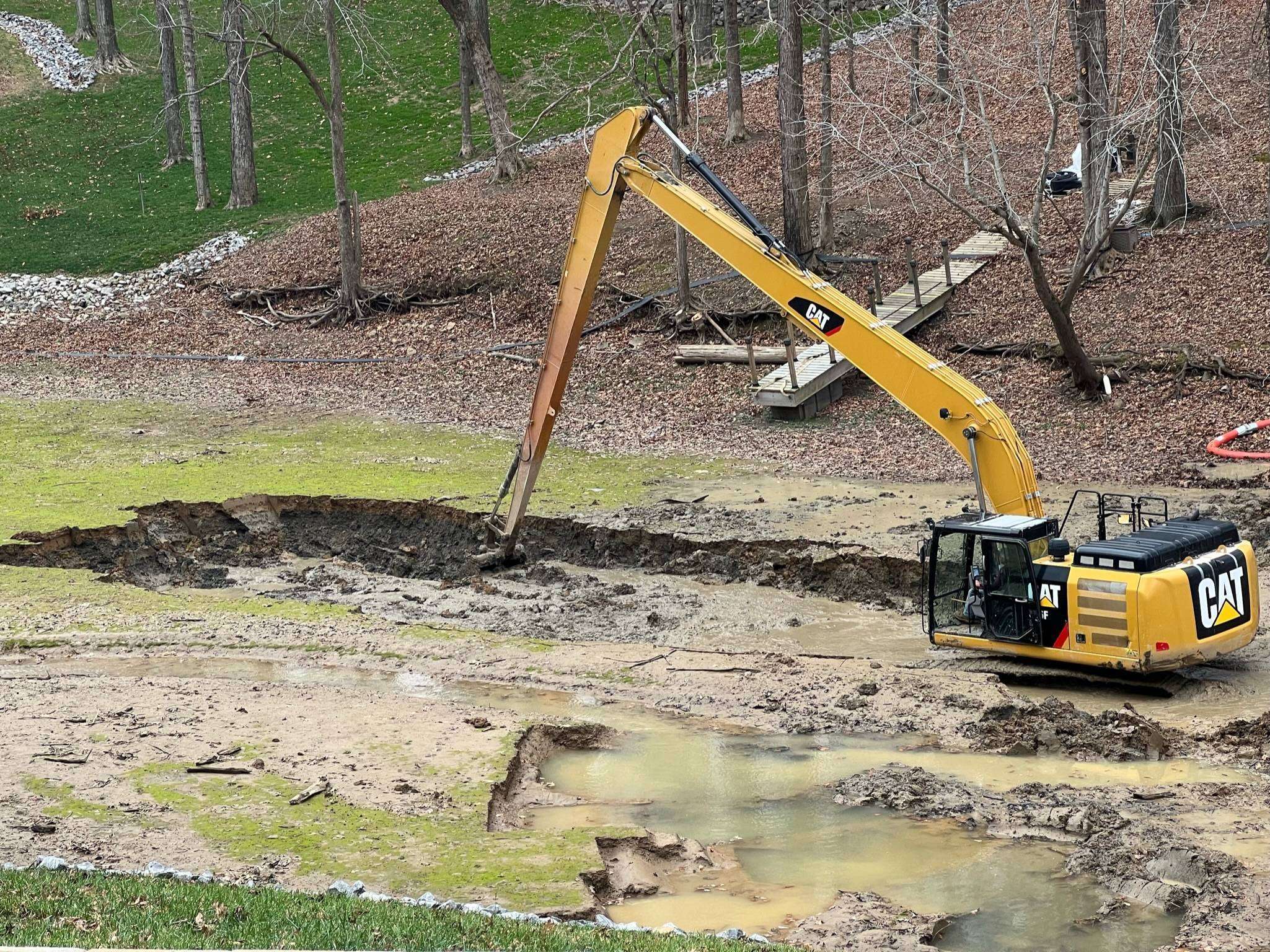Excavation cost estimation is a crucial aspect of any construction project. Understanding the factors that affect excavation costs and the different methods of estimation is essential for accurate budgeting.
Factors such as soil type, depth of excavation, and site accessibility play a significant role in determining the overall cost. In this article, we will explore the importance of excavation cost estimation, the methods used, the information required, and the tools available for accurate estimation. We will also discuss the challenges involved and the accuracy of these estimates.
Stay tuned to learn more about this critical aspect of construction planning.
Key Takeaways:
- Excavation cost estimation is the process of determining the expected expenses for digging and removing earth for construction projects.
- It is crucial to accurately estimate excavation costs to ensure the project stays within budget and avoid unexpected expenses.
- Factors such as soil type, excavation depth, site accessibility, and equipment and labor costs can greatly impact the overall excavation costs.
What Is Excavation Cost Estimation?
Excavation cost estimation is the process of determining the financial outlay required for excavation activities within a project.
Accurate cost estimation in excavation projects is vital for the overall success of a construction endeavor. Proper budgeting and planning based on precise estimates can prevent major financial setbacks and delays during the excavation phase.
Estimating costs involves a systematic evaluation of various factors such as labor, equipment, materials, site conditions, and project duration. Utilizing advanced estimation methods like quantity take-off, historical data analysis, and software tools can enhance the accuracy of cost projections. Effective project management hinges on realistic cost estimations, enabling stakeholders to make informed decisions and allocate resources efficiently.
Why Is Excavation Cost Estimation Important?
Accurate excavation cost estimation is crucial for project planning, budget management, and overall project success.
Cost estimation plays a pivotal role in determining the financial viability of excavation projects. It involves predicting the expenses involved in excavation, such as equipment rental, labor costs, material costs, and site preparation.
Having precise cost estimates enables project managers to allocate resources efficiently, set realistic budgets, and ensure that the project remains on track. Inaccurate estimates can lead to project delays, financial risks, and cost overruns, jeopardizing the completion timeline and overall success of the project. Hence, investing time and effort in accurate cost estimation is crucial from the outset of any excavation project.
What Are The Factors That Affect Excavation Costs?
Several factors can impact excavation costs, including soil composition, terrain complexity, contractor rates, and geographic location.
Soil composition plays a crucial role in determining the excavation costs as it affects the difficulty of digging and the type of equipment needed. For instance, digging through rocky soil can significantly increase costs compared to loose, sandy soil. Similarly, the complexity of the terrain, such as steep slopes or uneven surfaces, can require specialized equipment and skilled labor, adding to the overall expenses.
Accessibility to the excavation site is another key factor that influences costs. Sites with limited access may require additional planning and equipment, leading to higher expenses. Contractor expertise and experience are vital for efficient project management, timely completion, and cost control. Experienced contractors may charge higher rates but can deliver better quality work, ultimately saving time and money in the long run.
Type of Soil
The type of soil in an excavation area plays a significant role in determining the excavation costs due to varying levels of difficulty in excavation and grading requirements.
Soil composition greatly influences the ease or challenge of excavation work. For instance, sandy soils are generally easier to excavate than clay-rich soils that are more compact and require specialized equipment and techniques. The grading procedures also differ based on soil types; for example, loose and granular soils may need additional stabilization measures compared to cohesive soils.
Cost variations can be substantial based on the soil conditions encountered during excavation. Unforeseen challenges such as rock formations, groundwater issues, or contaminated soil can significantly impact project timelines and budgets.
Depth of Excavation
The depth of excavation directly influences the overall cost, especially in projects requiring deeper foundations or basements.
When embarking on deep excavation projects, it is imperative to consider the engineering challenges associated with digging deeper into the ground. The deeper the excavation, the more complex the engineering considerations become. Factors such as soil stability, water table levels, underground utilities, and neighboring structures all play a crucial role in determining the feasibility of excavating to greater depths.
Deeper excavations often necessitate more robust foundation requirements to ensure the structural integrity and stability of the building. This typically involves the use of specialized shoring systems, deep foundations such as piles or caissons, and increased reinforcement to withstand the added pressure exerted by the surrounding soil.
Cost implications of excavating deeper are substantial, as they encompass not only the actual excavation work but also the need for specialized equipment, expert labor, and potential delays due to unforeseen challenges that may arise.
Site Accessibility
Site accessibility is a critical factor affecting excavation costs, particularly in cases where limited access necessitates specialized equipment or manual labor.
Ensuring that a construction site is easily accessible can significantly impact the overall project cost. Restricted access can lead to delays, increased labor expenses, and the need to use specialized machinery, all of which can escalate the budget.
Difficult-to-reach sites pose unique challenges that often require creative solutions and strategic planning. Factors such as narrow pathways, steep terrain, or urban environments can further complicate logistics and drive up costs. Therefore, estimating expenses for projects in such locations involves meticulous evaluation of not only the labor and equipment requirements but also the potential adjustments needed to overcome access constraints.
Equipment and Labor Costs
Equipment and labor costs significantly contribute to the overall excavation expenses, especially in projects involving new construction or pool installations.
Specialized equipment such as excavators, bulldozers, and dump trucks plays a crucial role in efficient excavation processes. The costs associated with renting or purchasing these machines can heavily impact the budget. Skilled labor is also essential for excavation projects, with experienced operators and technicians being vital for safe and effective operations. Project requirements such as site conditions, depth of excavation, and environmental considerations can further influence the overall costs, making it crucial for project managers to carefully assess and plan for these expenses.
What Are The Different Methods of Excavation Cost Estimation?
Various methods are used for estimating excavation costs, including unit cost estimation, quantity takeoff estimation, parametric estimation, and detailed estimation.
Unit cost estimation involves determining the cost per unit of measurement, such as per cubic yard of material excavated or per linear foot of trench dug. Quantity takeoff estimation method requires calculating the quantities of materials needed for excavation by measuring dimensions and quantities from project plans and specifications. Parametric estimation uses historical data and predefined parameters to forecast costs based on similar past projects. Detailed estimation involves creating a comprehensive breakdown of all costs involved in an excavation project, including labor, equipment, materials, and overhead expenses.
Unit Cost Estimation
Unit cost estimation involves determining the cost per unit of excavation work, based on equipment rates, labor costs, and material expenses.
Estimating unit costs in excavation projects requires a thorough analysis of various cost components. Equipment rates play a crucial role in determining the machinery expenses per unit of work done on the site. The efficiency and capacity of the equipment used directly impact the overall project cost. Labor expenses encompass not only wages but also associated costs such as insurance and benefits. Material costs cover the prices of resources like gravel, sand, and cement needed for the excavation. By factoring in these elements, construction professionals can accurately calculate the cost per unit and effectively budget for the project.”
Quantity Takeoff Estimation
Quantity takeoff estimation involves calculating the quantities of materials and labor needed for excavation based on project plans and timelines.
This estimation process is crucial for project planning as it provides a detailed breakdown of material quantities required for construction activities. By analyzing the project drawings and specifications, estimators can determine the amount of concrete, steel, and other materials needed, ensuring accurate budgeting and scheduling. Quantity takeoff estimation plays a significant role in cost forecasting by allowing project managers to anticipate expenses and allocate resources efficiently. Timely and precise estimates help in optimizing project schedules and minimizing wastage of materials, contributing to successful project completion within budget.
Parametric Estimation
Parametric estimation uses historical data and project parameters to estimate excavation costs, often applied in foundation excavation projects.
By analyzing past projects with similar scope and scale, parametric estimation allows for a more accurate prediction of costs, compared to more rudimentary methods. This approach takes into account various factors like soil type, depth of excavation, equipment needed, and labor costs, providing a comprehensive cost estimate that reflects the specific requirements of each project. Utilizing sophisticated algorithms, parametric cost modeling can adapt to changing variables and adjust estimates accordingly, helping project managers make informed decisions and allocate resources effectively.
Detailed Estimation
Detailed estimation involves a comprehensive breakdown of excavation costs, considering all project aspects such as basement excavation and site grading.
This intricate process involves examining the cost factors related to excavation projects down to the finest details. Various elements, including labor expenses, equipment rentals, material costs, and disposal fees, need to be meticulously analyzed to arrive at an accurate estimation.
Specialized tasks like rock excavation or soil stabilization may entail additional costs that must be factored in. By conducting a thorough analysis, project managers can identify potential cost-saving opportunities and optimize budget allocations.
What Information Is Required for Excavation Cost Estimation?
Several key pieces of information are essential for accurate excavation cost estimation, including site plans, soil reports, equipment and labor rates, and project timelines.
Site plans are crucial for understanding the layout of the area and the scope of work involved. They provide details on existing structures, utilities, and any obstacles that may affect excavation.
Soil reports are equally important as they reveal the soil composition and conditions, helping to determine the type of excavation equipment needed and any additional soil stabilization required. Equipment and labor rates dictate the cost of the materials and workforce, directly impacting the overall project budget. Project timelines play a significant role in cost estimation, as longer delays can lead to increased labor costs and rental expenses. By meticulously considering these factors, accurate excavation cost estimates can be prepared to ensure financial feasibility and project success.
Site Plans and Drawings
Detailed site plans and drawings are crucial for accurate excavation cost estimation, providing insights into the project area and layout complexities.
These detailed drawings offer an essential roadmap for contractors, allowing them to understand the scope of excavation required, the types of materials present, and potential obstacles that may impact the construction process.
- An in-depth look at the site through these blueprints aids in determining the optimal methods for excavation, streamlining the process and minimizing unexpected costs that may arise due to unforeseen challenges.
- By closely examining site layouts and plans, professionals can identify critical factors such as soil composition, gradient variations, and existing infrastructure, all of which play a significant role in estimating excavation expenses accurately.
Soil Reports
Comprehensive soil reports are essential for excavation cost estimation, as they detail the soil composition, rock presence, and potential excavation challenges.
Understanding the geological makeup of the site is crucial for accurate budgeting as it helps in predicting how the soil will respond to excavation techniques like grading or trenching. Moreover, geotechnical investigations are vital in determining factors such as soil stability, bearing capacity, and potential groundwater seepage, which directly impact the project’s costs and timeline. Engineers and contractors rely on these reports to make informed decisions about site preparation, foundation design, and construction methodologies.
Equipment and Labor Rates
Accurate information on equipment and labor rates is critical for precise excavation cost estimation, considering the impact of contractor expenses on project budgets.
Equipment costs play a significant role in determining the overall expenses of a construction project. The rates for machinery such as excavators, bulldozers, and dump trucks can vary greatly, depending on factors like size, capacity, and technological capabilities. Similarly, labor rates are pivotal as they encompass wages, benefits, and overhead costs associated with the workforce. By having access to up-to-date data on these rates, project managers can create accurate budget forecasts and avoid unexpected cost overruns.
Project Timeline
A well-defined project timeline is essential for accurate excavation cost estimation, especially in projects impacted by seasonal constraints or geographic considerations.
When planning excavation projects, adhering to a structured timeline helps in predicting costs more accurately and avoiding unforeseen expenses. Delays due to weather conditions, such as heavy rain or snow in certain regions, can significantly impact project schedules, leading to increased labor and equipment costs. Incorporating these geographic factors into project scheduling is crucial to prevent budget overruns and maintain profitability.
Seasonal variations can also affect the availability of resources, subcontractors, and materials, further influencing the project duration and overall cost. For instance, in colder climates, winter months may necessitate additional measures like frost protection, heating equipment, or specialized techniques, all of which can add to the project expenses.
What Are The Tools Used for Excavation Cost Estimation?
Various tools are employed in excavation cost estimation, including spreadsheets, specialized estimating software, and online calculators.
Spreadsheets offer a versatile platform for creating detailed cost breakdowns, allowing users to input various parameters and formulas to generate accurate estimates. Meanwhile, specialized estimating software provides advanced features such as database integration, customizable templates, and bid management capabilities, streamlining the overall estimation process.
Online calculators, on the other hand, offer quick and easy solutions for basic cost calculations, making them ideal for initial estimations or rough estimates. The benefit of these digital tools lies in their ability to enhance precision, efficiency, and consistency in cost estimation practices, ultimately leading to more well-considered choices and budget control in construction projects.
Spreadsheets
Spreadsheets are commonly used for basic excavation cost calculations, allowing contractors to input data and generate detailed budget breakdowns for yard projects.
They serve as versatile tools for organizing project expenses, labor costs, material estimates, and other crucial factors in a structured manner. Utilizing functions and formulas, spreadsheet applications enable users to perform complex calculations efficiently, ensuring accurate estimations. Contractors can customize these spreadsheets to suit specific project requirements, incorporating variables such as equipment rental rates, labor hours, and material prices.
Moreover, Excel and similar programs facilitate real-time updates, instant recalculations, and easy sharing of budgeting documents among project stakeholders. This transparency and accessibility enhance collaboration and enable quick adjustments as project parameters evolve.
Estimating Software
Specialized estimating software streamlines the excavation cost estimation process, enabling accurate budget projections for construction and foundation projects.
One key advantage of using estimating software is the ability to create detailed and customizable cost estimates quickly. These digital tools allow project managers to input various parameters such as labor costs, material prices, and equipment expenses with ease, significantly reducing the time spent on manual calculations.
This software also enhances accuracy by minimizing human errors and inconsistencies that can occur in traditional estimation methods. With built-in formulas and databases, the software can provide real-time updates and adjustments, ensuring that the budget projections remain precise throughout the project lifecycle.
Online Calculators
Online calculators provide quick cost estimates for excavation projects, offering insights into equipment needs and budget considerations for pool installations.
These digital tools are designed to simplify the process of estimating excavation costs by allowing users to input project specifics such as depth, dimensions, soil types, and labor costs. By leveraging sophisticated algorithms, online calculators can swiftly generate accurate projections, helping contractors and homeowners plan their budgets effectively. These calculators come in handy for estimating equipment expenses, from heavy-duty machinery like excavators and dump trucks to smaller tools required for digging and leveling.
How Accurate Are Excavation Cost Estimates?
The accuracy of excavation cost estimates can vary based on the availability of project data, unforeseen site conditions, and contractor expertise.
Availability of comprehensive project data is crucial for accurate estimation. Factors such as soil composition, terrain characteristics, and utility layouts significantly impact excavation costs.
Unforeseen site conditions, like underground obstacles or environmental regulations, can introduce cost variances. Contractor expertise plays a pivotal role in assessing these factors and providing precise estimates.
Challenges such as inaccurate data, scope changes, and market fluctuations can lead to cost variance. Setting accuracy benchmarks, utilizing historical data, and incorporating risk analysis are essential strategies to enhance estimate precision amidst project uncertainties.
What Are The Common Challenges in Excavation Cost Estimation?
Excavation cost estimation faces challenges such as unforeseen site conditions, homeowner expectations, equipment limitations, and fluctuating material costs.
When dealing with unforeseen site conditions, a common dilemma arises as these unexpected factors can significantly impact the timeline and overall cost of the project. In addition, meeting homeowner expectations can be challenging, as their preferences often involve additional features or alterations that may not have been initially considered.
Equipment limitations play a crucial role in cost estimation, as not having the appropriate machinery can lead to inefficiencies and delays, driving up expenses. The constant fluctuations in material costs pose another layer of complexity, making it difficult to accurately forecast the total expenditure.
Frequently Asked Questions
What is excavation cost estimation?
Excavation cost estimation is the process of predicting the expenses associated with digging and moving earth for a construction project.
What factors affect excavation cost estimation?
Some factors that influence excavation cost estimation include the type of soil, depth of excavation, equipment and labor costs, site accessibility, and any potential hazards.
How is excavation cost estimation calculated?
Excavation cost estimation is typically calculated based on the volume of soil to be moved, equipment and labor rates, and any additional costs such as rock blasting or removal of debris.
Why is accurate excavation cost estimation important?
Accurate excavation cost estimation is crucial for creating a realistic budget and preventing unexpected expenses during the construction process. It also helps in making informed decisions about the feasibility of a project.
What are some common challenges in excavation cost estimation?
Some challenges in excavation cost estimation include changes in soil conditions, unexpected obstructions, inaccurate measurements, and unforeseen site conditions.
How can one improve their excavation cost estimation skills?
Improving excavation cost estimation skills can be achieved through experience, learning from industry professionals, utilizing technology such as computer-aided estimating software, and continuously updating and adjusting the estimating process based on past projects.
Supreme Enterprises LLC
Looking for reliable excavation solutions? Look no further! With over 16 years of experience, our skilled professionals at Supreme Enterprises specialize in excavation work of all kinds. Our cost-effective solutions cater to all property types. Take the first step by calling us today at (270) 205-4108 and let us handle your project needs with utmost precision and expertise.











